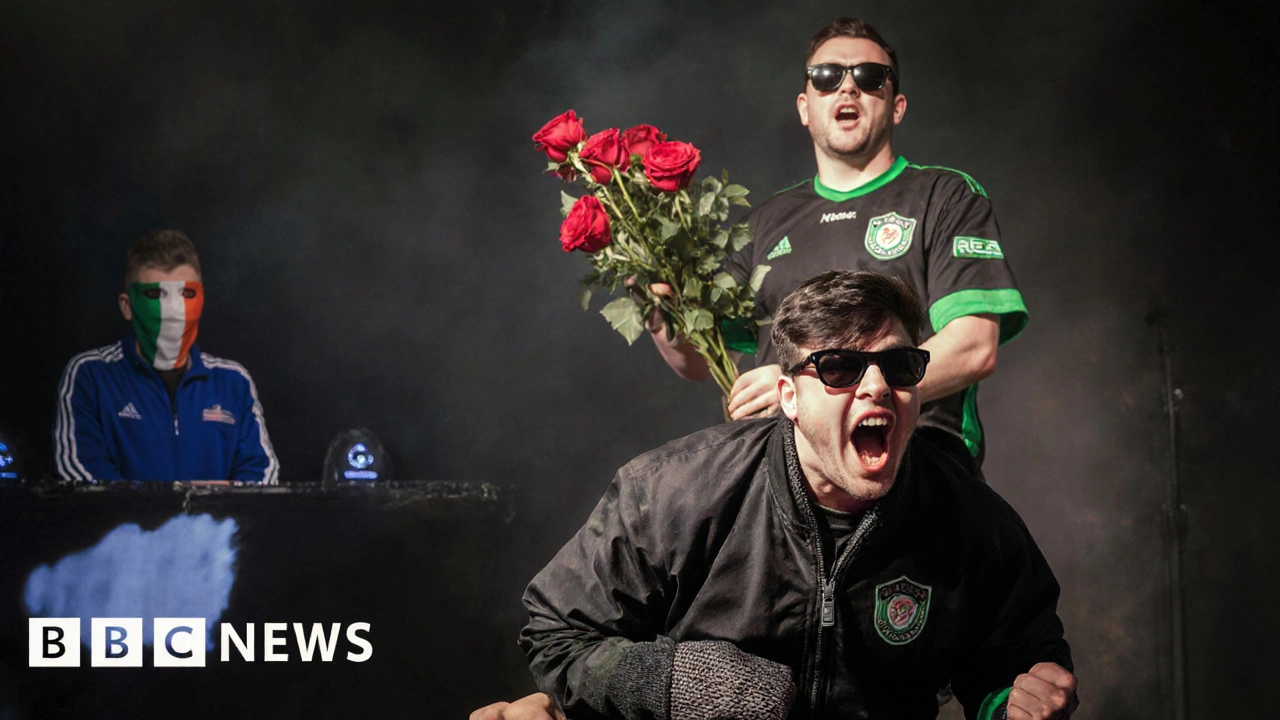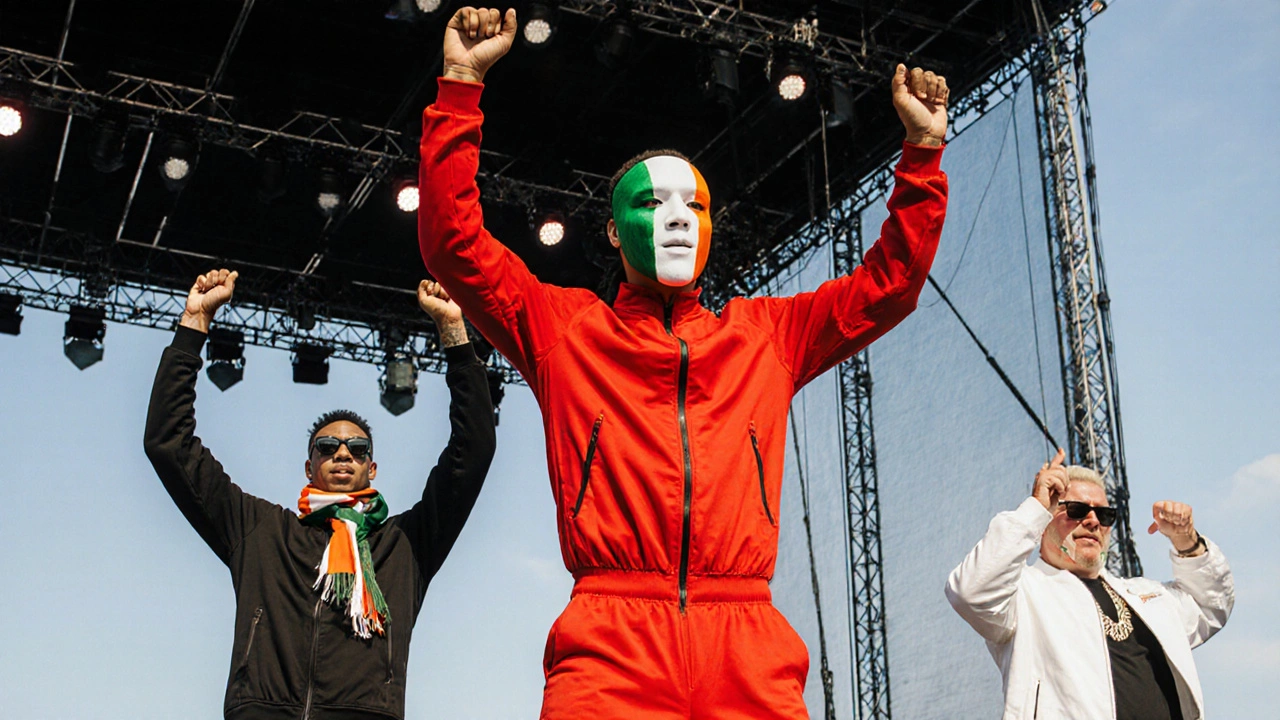Why the trio became a flashpoint
Kneecap is a three‑member hip‑hop outfit from Belfast that raps exclusively in Irish. Their lyrics blend street‑level storytelling with a fierce political edge, often siding with the Palestinian cause. Over the past few years the band’s profile has exploded – after a glowing set at Coachella their streams in the US nearly doubled, and a headline slot at Glastonbury saw crowds overflow into the arena.
The controversy started to heat up when frontman Liam Óg Ó Hannaidh lifted a Hezbollah flag onstage at a London gig last year. British authorities treat the group as a terrorist organisation, and the flag display led to terrorism‑related charges. A London court later threw the case out on a technicality, with the magistrate calling the prosecution unlawful.
That episode, combined with the band’s frequent calls for a boycott of Israel and graphic images of Gaza, has drawn sharp criticism from governments that view any praise of Hamas or Hezbollah as a security risk. Critics say the trio’s shows act as a platform for extremist propaganda, while supporters argue they are simply exercising free speech on behalf of a oppressed people.

Canada’s ban and what it means for fans
In early October 2025 Liberal MP Vince Gasparro announced on X that Canadian immigration officials had refused the group entry, cancelling their sold‑out dates in Toronto and Vancouver. The ban aligns Canada with Hungary, which previously barred the band, and reflects a broader trend of Western nations tightening entry rules for artists linked to contentious political statements.
Ticket‑holders across Canada expressed disappointment and anger on social media, many demanding refunds and accusing the government of stifling artistic expression. The ban also raises questions about how immigration law intersects with cultural events – does a political stance automatically trigger a security assessment, or should there be a clearer line between speech and incitement?
For Kneecap, the decision is another chapter in a pattern of push‑back that they say is aimed at silencing their pro‑Palestinian voice. The band maintains they support the rights of the Palestinian people but do not endorse Hamas or Hezbollah, and they have vowed to keep using music as a platform for political debate.
Industry observers note that the ban could actually boost the group’s global profile even further. In the age of streaming, a headline like “banned in Canada” often translates into spikes in plays and media coverage, a phenomenon the band seems to have navigated before. Whether fans in Toronto and Vancouver will get a chance to see the trio live remains uncertain, but the controversy is likely to keep Kneecap in the headlines for months to come.
